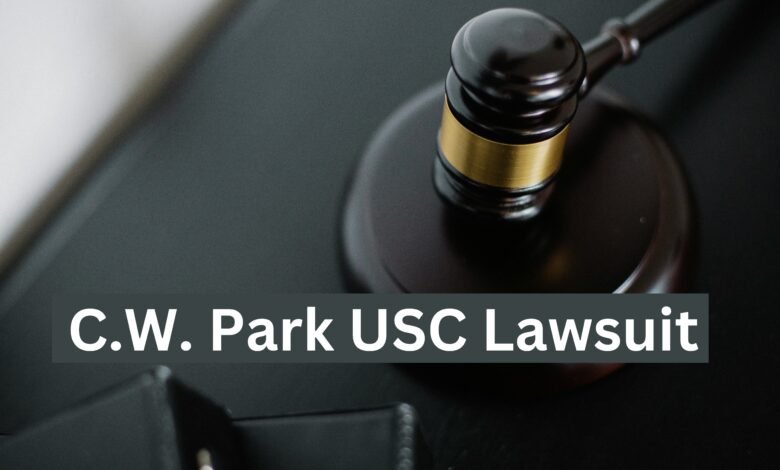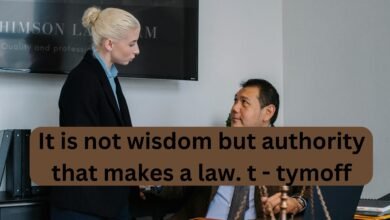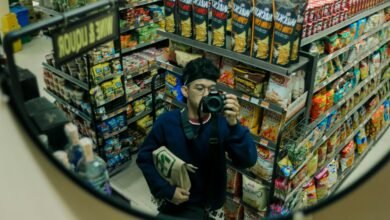C.W. Park USC Lawsuit : An In-Depth Review by BaddieHub

Introduction
The C.W. Park USC lawsuit has emerged as a focal point of controversy and scrutiny within the academic community. This legal battle, involving C.W. Park, a prominent professor at the University of Southern California (USC), has garnered significant attention due to its complex nature and the serious allegations at its core. In this detailed review by BaddieHub, we will dissect the background of the lawsuit, examine the key allegations, explore the legal proceedings, and assess the broader implications for both USC and the academic field.
Background of the C.W. Park USC Lawsuit
Who is C.W. Park?
C.W. Park is a well-respected professor at USC’s Marshall School of Business. Known for his extensive research and contributions to the fields of marketing and consumer behavior, Park has been a significant figure in academia. His career has been marked by numerous accolades and a reputation for excellence. However, recent allegations have cast a shadow over his professional achievements and brought him into the legal spotlight.
Context of USC
USC, a leading private research university in the United States, has faced its share of legal and ethical challenges over the years. Known for its academic excellence, the university’s reputation has occasionally been marred by controversies. The C.W. Park USC lawsuit adds to this complex narrative, raising questions about USC’s internal practices and its handling of ethical issues.
Allegations in the C.W. Park USC Lawsuit
Misuse of Research Funds
At the heart of the C.W. Park USC lawsuit is the allegation of misuse of research funds. Park is accused of diverting substantial amounts of money, originally allocated for academic research, for personal use. This accusation is significant as it directly questions the integrity of Park’s research and the oversight mechanisms within USC. Mismanagement of research funds is a serious issue that undermines trust in academic institutions and their ability to maintain ethical standards.
Academic Misconduct and Ethical Breaches
In addition to financial misconduct, Park faces allegations of academic misconduct. These include claims of data manipulation and ethical breaches in his research practices. Such accusations strike at the core of academic integrity, raising concerns about the reliability of Park’s published work and the research environment at USC. The integrity of academic research is fundamental to the credibility of educational institutions, and any deviation from ethical standards can have far-reaching consequences.
Discrimination and Retaliation Claims
Another layer to the C.W. Park USC lawsuit involves claims of discrimination and retaliation. Dr. Christina Park, a former colleague, has alleged that she faced racial and gender-based discrimination, as well as retaliation for her complaints against Park. She claims that despite her qualifications, she was unfairly treated and denied opportunities due to her race, gender, and age. Additionally, Dr. Christina asserts that her job was compromised after she filed a formal complaint with the Equal Employment Opportunity Commission (EEOC). These allegations highlight potential issues of discrimination and the need for fair treatment within academic institutions.
Student Allegations
The C.W. Park USC lawsuit also includes allegations from students, particularly Korean students, who have claimed to experience sexual harassment from Park. These students allege that Park demanded sexual favors in exchange for academic benefits and threatened their academic performance if they refused. Such allegations, if proven true, point to serious abuses of power and a failure of institutional safeguards designed to protect students from harassment and exploitation.
Legal Proceedings and Developments
Initial Mediation Attempts
In the early stages of the C.W. Park USC lawsuit, both parties attempted to resolve the matter through mediation. Mediation, a common practice in legal disputes, aims to reach a settlement without going to court. However, these efforts were ultimately unsuccessful, leading to the formal filing of the lawsuit in the Los Angeles County Superior Court. Mediation’s failure underscores the complexity and severity of the issues at hand.
Court Arguments and Evidence
As the lawsuit progressed to court, both sides presented their arguments and evidence. Park’s defense team contends that the allegations are baseless and driven by internal conflicts within USC. They argue that any discrepancies in the management of funds were due to administrative errors rather than intentional misconduct. Park’s defense aims to disprove the claims and restore his reputation.
On the other hand, USC’s legal team asserts that there is substantial evidence supporting the allegations. They reference internal audits and witness testimonies to substantiate their claims of misconduct. USC seeks restitution for the allegedly misused funds and damages for the reputational harm caused by the scandal. The university’s legal strategy focuses on demonstrating the validity of their claims and the necessity of accountability.
Public Scrutiny and Media Coverage
The C.W. Park USC lawsuit has attracted significant media attention and public scrutiny. The high-profile nature of the case has led to widespread coverage and analysis, with observers closely following the legal proceedings and their implications for academia. The media’s role in highlighting the case has amplified its impact, drawing attention to issues of ethical conduct and institutional accountability.
Impact on USC and the Academic Community
Reputational Risks for USC
The C.W. Park USC lawsuit represents a substantial reputational risk for USC. The university’s handling of the case will be under intense scrutiny, and any perceived mishandling could further damage its standing within the academic community. The lawsuit’s outcome could influence public perception of USC and its commitment to maintaining ethical standards.
Broader Implications for Academia
This lawsuit carries broader implications for the academic community. It underscores the importance of maintaining rigorous ethical standards and transparency in academic research. The case highlights the need for robust mechanisms to prevent, detect, and address instances of misconduct and discrimination. It also raises awareness about the pressures faced by academics in securing funding and the potential pitfalls associated with it.
Institutional Accountability
The C.W. Park USC lawsuit raises critical questions about institutional accountability. It challenges universities to ensure that they have effective procedures in place for addressing grievances and maintaining ethical standards. The case serves as a reminder of the importance of fostering an environment where ethical behavior is upheld and where complaints are taken seriously and investigated thoroughly.
Future Outlook
Possible Outcomes
The resolution of the C.W. Park USC lawsuit could take various forms, including a settlement or a court ruling. A settlement might involve an agreement between the parties without a formal court decision, while a court ruling would provide a legal determination of the issues at hand. Regardless of the outcome, the case is likely to have lasting effects on both Park and USC. It may also influence future discussions and legal precedents related to academic integrity and institutional practices.
Lessons for Academic Institutions
The C.W. Park USC lawsuit offers valuable lessons for academic institutions. It emphasizes the need for clear policies and practices to address allegations of misconduct and ensure ethical conduct. Universities must continually evaluate and strengthen their oversight mechanisms to prevent and address issues of corruption, discrimination, and harassment. The case also highlights the importance of creating inclusive and supportive environments for all members of the academic community.
Conclusion
The C.W. Park USC lawsuit is a multifaceted and significant legal dispute with far-reaching implications. It brings to light critical issues related to ethical standards, institutional governance, and the integrity of academic research. As the case continues to unfold, it serves as a crucial reminder of the need to uphold rigorous standards of conduct within academia and to address allegations of misconduct with transparency and fairness. The lawsuit will likely have enduring effects on both C.W. Park and USC, influencing future discussions on academic integrity and institutional accountability.
FAQs
What are the main allegations in the C.W. Park USC lawsuit?
The primary allegations involve the misuse of research funds and academic misconduct. Park is accused of diverting research money for personal use and manipulating data.
How has USC responded to the lawsuit?
USC has presented substantial evidence supporting the allegations and is seeking restitution and damages. The university asserts that it has conducted a thorough investigation.
What impact does the C.W. Park USC lawsuit have?
The lawsuit poses a reputational risk to USC and may affect its standing within the academic community. The university’s handling of the case will be closely monitored.
How does the lawsuit affect the broader academic community?
The lawsuit underscores the importance of maintaining ethical standards and transparency in academic research. It highlights the need for effective oversight mechanisms.
What are the possible outcomes of the lawsuit?
The possible outcomes include a settlement or a court ruling. The resolution will likely have lasting effects on both C.W. Park and USC and may influence future academic integrity discussions.
Also read: Choice Home Warranty George Foreman : A Review by BaddieHub




